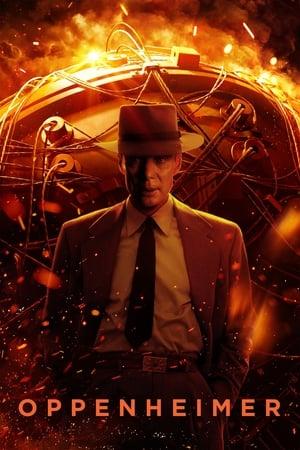
Oppenheimer it's a movie with Cillian Murphy, Emily Blunt, Matt Damon, Robert Downey Jr., Florence Pugh Full cast. Directed by Christopher Nolan. Original title Oppenheimer Genres Drama, History.
reviews
After that great splendor of
![Roberto Flauto]() Roberto Flauto
Roberto Flauto
 Roberto Flauto
Roberto Flauto
His Life would be my Death.(John Keats) -3. After In Paradise Lost, Satan at one point says: "we know of no time when we were not as we are now." It is no coincidence that Harold Bloom - in his precious and beautiful The Anguish of Influence - identifies the substance of the modern poet in Milton's Satan. I don't intend to dwell on this. I will be brief. In Bloom's theory – which I fully embrace – interpoetic relationships are fundamentally acts of revision. A continuous denial to affirm oneself. A war between the emerging poet (the ephebe, he calls him) and his strong precursor. And only the strong poet can win such war, but he will be a strong poet only if he wins the war. Writing, therefore, is nothing other than a condemnation, or an atonement, a perpetual giving birth. And history – and History – does nothing but repeat itself. From caves to the edges of the cosmos. We know of no time when we were not like now. The poet is the one who is chosen, and his awareness of being chosen is a sort of curse for him: the poetic man carries within himself a silent, insatiable and mirror ghost. But the poetic man is not only the (strong) poet. He is the scientist, the technician, the doctor, anyone capable of transcending reality, of bringing the beyond closer (Baudelaire), of filling the void (Brodskij), of inhabiting nothingness (Merini). That is: metaphor. That is: crossing the river that separates us from the future, from the dream, from the possible world. And everything changes. Tomorrow, life, death, possibilities. And everything transforms. The dreams, the fears, the nightmares, the hopes. The point of no return is marked (which becomes such only in retrospect), the catastrophe (morphogenesis) is accomplished and nothing will be, is, was as before. Because we don't know any time in
Read all
Review of
![Francesca Arca]() Francesca Arca
Francesca Arca
 Francesca Arca
Francesca Arca
Things I DIDN'T LIKE AT ALL:1. A film is shown, not told. If you have to "explain" too much to me, there's something that isn't working well. Sometimes it's better to put fewer irons in the fire and maintain a narrative line rather than try to add anything and leave the task of summarizing to the characters. (Chris, you already had flashbacks which if used wisely can become a delight.)2. If you structure the film as a kind of hero's journey that shows regret for a decision made, then you necessarily have to show me the guilt of him! If you show me the Trinity outbreak in the American desert (the success before the tragedy) you must also show me Hiroshima (the tragedy after the success). Even just a one-second freeze frame would have been enough. Even just a fragment of a period photo would have been enough. But the "guilt" of the hero whose journey you describe must be shown. The various Kubricks or Malicks - whose echoes many hear - would have had the courage to do it.3. Excellent cast but almost unused. I believe that many thought that this is one of those films that will "stay" and decided to be there even if with three lines. It's a shame because some characters would have deserved something more (GARY OLDMAM, MATTHEW MODINE, KENNETH BRANAGH, RAMY MALEK, but above all CASEY AFFLECK in the part of the very icy Boris Pash. In the two minutes given to him he almost steals the show from Murphy.4 - Sex scenes a bit ridiculous. If you really want to include a sex scene, at least make sure that it isn't so "out of the blue, without sense" (cit.) and if that's not the case, make sure that it is aesthetically very well shot.5. Give this man a screenwriter! The real mistake is that for a film like this a "so-so" screenwriter was needed (cit. Mario Brega).
Read all
Physical ingratitude of
![Diego Cineriflessi]() Diego Cineriflessi
Diego Cineriflessi
 Diego Cineriflessi
Diego Cineriflessi
SoundtrackDirectionScreenplay
Christopher Nolan proves himself to be an increasingly independent author, free thinker and creator of suggestive imagery capable at the same time of exploiting, without ever bowing to, the major Hollywood studios. Oppenheimer trumpeted as a spectacular work is instead an extremely layered film on science, politics and personal relationships because the actions of those who innovate the world always have implications in all fields of humanity. The show, unlike what happened in Dunkirk, Nolan's previous film set during the Second World War, is well confined to a few brilliant scenes while the rest is pure screenplay film. And the film is based on a granite script. He is not afraid to fly high with either science or classic quotes and he digs in with sharp, cutting dialogues that stimulate thought. The portrait of a modern Icarus who stole the fire of the atomic bomb, but is also disowned by those who saved him is successful. When you fly high, enemies are everywhere, as are the remorses that appear before the protagonist's eyes and materialize on the big screen. Because Nolan doesn't give up the power of images. From the visions of the protagonist to the Los Alamos test, passing through the magmatic representation of quantum physics, it is a search for quality and uncomfortable points of view. Because nothing is light in Oppenehimer's life. Finally, we cannot fail to mention Gorannson's extraordinary soundtrack which cloaks the film in the sounds of nightmares. A large-scale film that cannot help but reconcile the public with cinema led by an extraordinary Cillian Murphy in the monstrous role of the protagonist. Truly remarkable, just as you can't forget Robert Downey Jr as his nemesis. To be seen
Read all
Review of
![Valentina]() Valentina
Valentina
 Valentina
Valentina
SoundtrackDirectionCostumesActing
Reading the various reviews here on Filmamo, around the web and listening to the immediate comments outside the theater, we can safely say that this film has everyone in agreement. It has some small imperfections, such as (and on this I agree with the user @francescaarca) that of the screenplay, which perhaps the good Christopher could have taken care of better, but it is such an imposing work, that even what is potentially wrong , forget it. The moral dilemma that the film poses for you, the way in which Nolan tells you about such an important historical moment for all of humanity in 3 hours that flow smoothly, where I personally experienced all the vast range of emotions that a human being has gifted, I think it is unprecedented. A film with a soundtrack that gives you goosebumps, as well as the cinematography, 3 hours of pure talent brought to the screen by the entire cast, main and otherwise. Cillian Murphy has undoubtedly given us his best work, the role of a lifetime, a man who wouldn't need to recite words written on a script, the most expressive eyes in contemporary cinema. I may be shamelessly biased, having "lost my head" for Robert Downey Jr when I was a child, but he was nothing short of perfect!! I forget where, but I've read critics who have defined his work as: "basically, Aged Tony Stark", a comment that I find sincerely predictable, prejudiced and very far from reality. I only have applause and ovations for Blunt, Pugh, Affleck, Oldman, Hartnett, Damon, Malek, Branagh even though they didn't all have the same space. But leaving the technical and cinematographic aspect aside, I believe that what makes this film truly special is what it tells us, how we human beings inevitably manage to destroy everything we touch. Extraordinarily brilliant minds, who use their knowledge to
Read all
Review of
![Giacomo Pescatore]() Giacomo Pescatore
Giacomo Pescatore
 Giacomo Pescatore
Giacomo Pescatore
SoundtrackDirectionScreenplayCostumesScenographyMake-upSpecial effectsActing
A wonderful film in every respect, which is at the same time a biography, a historical film, a procedural film, an ethical reflection and a film about human relationships (family relationships, of course, but also and above all between science and politics, between genius and normality ; in this, as already written by others, the film is also the story of an antagonism, which is very reminiscent of the one at the basis of Amadeus). To be seen at the cinema and then to be seen again everywhere.
Read all
Review of
![Notjustmovie]() Notjustmovie
Notjustmovie
 Notjustmovie
Notjustmovie
And finally for me too the moment has come for Oppenheimer, the film which with Barbie, which I found very cute and intelligent, brought people back to the cinema in the summer at least in our area. Nolan is one of the few directors, the another thing that comes to mind is Tarantino, who creates the event, his works make people go to the cinema, and he deserves sympathy for that alone, sparking fierce diatribes among fans. I like it, I find his works stylistically very beautiful as already written, terribly tiring. His films are often pachydermal self-referential slops that are technically flawless but, like the recently recovered Inception, emotionally sterile. With Oppenheimer he tries his hand at a biopic for the first time: the result is a profoundly Nolanian film, without the defects of previous works; First of all, the director gets rid of all that self-referentiality which, at least personally, I have always found irritating. Oppenheimer is a very verbose film capable of keeping the viewer's attention high, at times it is a thriller, a work that talks about science, a reflection between duty and moral conflict. A bomb, if I may use the term, capable of reaching the viewer's head and heart. Technically impeccable, a stupendous soundtrack, it has a monumental cast. If Matt Damon gets older the better he becomes and Cillian Murphy almost disappears in the role of the scientist, there is a Robert Downey Junior majestic in his devious wickedness, in an acting performance that, we hope, the Academy will not forget. As far as I'm concerned, with Babylon, the best film of the year.
Read all
Considerations on Oppenheimer of
![roberto caione]() roberto caione
roberto caione
 roberto caione
roberto caione
In 1955, Richard Feynman gave a speech on “The Value of Science.” He began with a Buddhist proverb he had learned on a trip to Honolulu: “To every man is given the key to the gates of heaven; the same key opens the gates of hell." This could be the extreme synthesis of a cinematic masterpiece that undoubtedly brought a thorny discussion from an ethical and moral point of view to the world's attention. The main focus of the film was the trial of Oppenheimer, the head of the Manhattan Project, not the inventor of the atomic bomb. In light of this, it is not difficult to understand how the historical narration of a fact that actually happened was the golden opportunity to once again put science and its technical and political responsibilities on trial. Since it is really difficult to find faults in this cinematic masterpiece, since I am not an expert in cinema or history and considering that by now everyone has reviewed Oppenheimer, I will limit myself to expressing 3 personal considerations. Let's start with Feynman. In 1955, 10 years had passed since the dropping of the two bombs, the audience gathered to listen to the future Nobel Prize winner (1965) was faced with a much more mature personality than the young genius; engaged in the Manhattan project before even obtaining a degree, he himself defined himself as a "nobody" and then became a point of reference like few others. A change of perspective that not only interested the youngest and most fervent minds of the project. Those who understood it with the Trinity Test, those who had confirmation with Hiroshima, those who had certainty with Nagasaki, everyone was aware that a new era had begun and it was necessary to take a clear position. There was no longer a Hitler to beat, but a humanity to safeguard. It's easy to figure out who
Read all
A great film from a mature director of
![Stefano Gasperi]() Stefano Gasperi
Stefano Gasperi
 Stefano Gasperi
Stefano Gasperi
I didn't expect a biopic from Nolan...But Nolan is Nolan and therefore you have to see his vision at the cinema, which even a 10,000 inch film won't make in your living room. Ambitious, at times slow (but in 3 hours I'd like to see who can succeed not to lose the rhythm a bit) but. A truly impressive cast of actors, like the performances, with Murphy, Downey Jr., Blunt and Plugh (despite the reduced running time he gives considerable depth to his character); even the supporting characters are played by magnificent actors, one above all Rami Malek, incisive in just under 5 minutes on the screen. But it is not only a great acting performance, a great direction (dry but which 'betrays' the hand behind the camera), but it is a film about love and passion (for human beings and their weaknesses, for work) that makes you cross a limit. The limit where you realize that you have a power that deifies you but, precisely the fact of residing in the empyrean of the minds moves the envy, the fears of 'normal' beings who will do anything to give meaning to their miserable lives. The limit that puts you in front of the fact of having to risk humanity entire for your Passion, your divinity is then, when you have created the unimaginable, understanding only then that you have given shape to the deepest fear that men have and that what you feared most has come true. Now the rest of life is just living with guilt. A monumental film. Absolutely worth seeing.
Read all
A biography that is too self-centered of
![Rael70]() Rael70
Rael70
 Rael70
Rael70
DirectionScreenplayActing
The most anticipated and discussed film of 2023 needs no introduction, neither regarding the director nor the cast. I therefore prefer to go straight to the heart of the discussion: is this a Nolan or Stone film? A 3-hour long work, the last of which seems to have been shot by the American director rather than the London one; a film passed off as the one "where you see the explosion of the atomic bomb" but which, in reality, turns out to be an accurate investigation (JFK style) on everything that concerned the life and projects of Robert Oppenheimer defined by history as the "father ” of the atomic bomb, the weapon that will be used by the Americans in Hiroshima and Nagasaki. The film is, concretely, the transposition of the book "American Prometheus" written by Oppenheimer, therefore it is his autobiography where the author recounts his life, from his university beginnings to his indictment by the Atomic Energy Commission. “Oppenheimer” seems to be filmed by Oliver Stone because the structure of the film is indebted, in all respects, to the American director's investigative films: essentially I can say that it is the least Nolan-like film by the English director. The film (or rather the autobiography) does not delve into the scientific aspect (after all, the scientist of Jewish origins was not a specialist in any of the fields relating to the construction of the bomb but was a director, someone who knew how to manage compartments and human resources ), nor does it show the monstrous devastating effects of atomic energy (the two bombings of August 1945 are continually mentioned but not shown) but rather it proceeds according to a rigid chronology of events where the author is obviously placed in the role of protagonist. It is a film that tells but does not show what would be essential (it is okay to give an overview of the vicissitudes experienced by the scientist in the aftermath of the launch of the atomic bomb and the refusal to build the H bomb but the pillory
Read all
plot
The story of J. Robert Oppenheimer’s role in the development of the atomic bomb during World War II.














